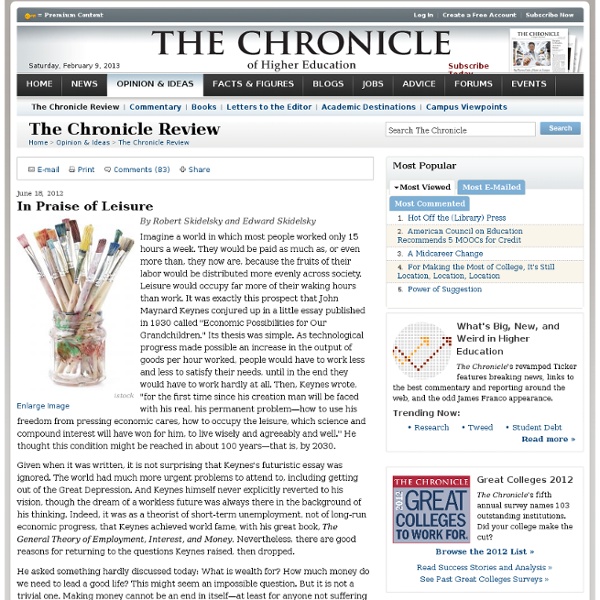In Praise of Leisure - The Chronicle Review

3 Ways to Get Inspired (And Leave Your Slump Behind) | Dan Bolton
We all, from time to time, can fall into a slump. A low muddy bog of emotion. Sometimes it can feel as strong as an all consuming depression, anxiety or apathy. Other times it can simply be a lack of focus & a struggle to get things, anything, done. I know, because in the last few months, at different times, I’ve ticked all these boxes and more – Often wanting to DDT my inner man until he comes to his senses. In the midst of all of this, however, there is hope. The lie we can begin to believe is that we’re completely helpless to everything happening to us and basically curl up into the foetal position, figuratively or literally (Guilty), and wait for life to deal us better cards. We can simply be 1 inspiring idea, experience or person away from entering into a new day. Here are 3 to get you started. What we can often perceive as boredom and a lack of passion may really just be familiarity. Here are a few places to help you get started. TED: Ideas Worth Spreading iTunes University
This Blog Rules | Why go elsewhere?
Books of Adam
Related:
Related:



